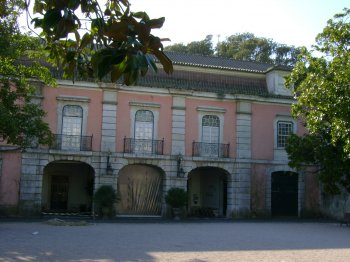Explore the best places
Monuments in Lisboa
Palacete Norton de Matos
- heritage
Alameda das Linhas de Torres, 150-152
1750-149, Lisboa
Baroque and Rococo Palace, irregular longitudinal plant, consisting of a central body highlighted and some extreme bodies access portals. On the main façade, highlighted by the two portals with late-Baroque influences.
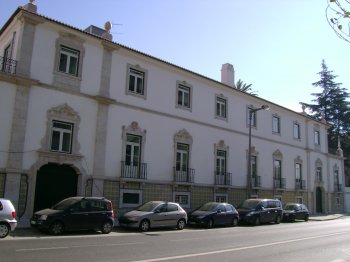
Palacete na Alameda Linhas de Torres / Villa Sousa
- heritage
Alameda das Linhas de Torres, 22
1750-146, Lisboa

Arco da Rua Augusta
- heritage
Rua Augusta
1100, Lisboa
The Arco do Triunfo is located at the Augusta Street. It is a work from the XVIII century which symbolizes the city recovery after the earthquake in 1755.
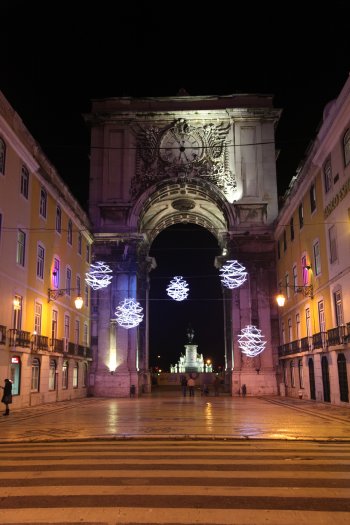
Núcleo Antigo da Rua do Lumiar
- heritage
Rua do Lumiar
1750, Lisboa
Small rural nucleus of the suburbs of Lisbon, incorporating an ancient medieval core, developed around a Royal rural property that evolved from the 16th century to a linear urban formation.

Palácio Porto Côvo
- heritage
Rua de São Domingos, 37
1200-678, Lisboa
The palace is built between 1770/1790, being the residence of Jacinto Fernandes Bandeira, the first Porto Covo baron. The building is later bought by the British State and became the Embassy of the United Kingdom in Lisbon. The palace is organized in U, integrating the chapel as a semi-autonomous entity. At the garden may be seen a tank with a small cascade and a small swimming-pool built for the workers for the company that presently runs here.
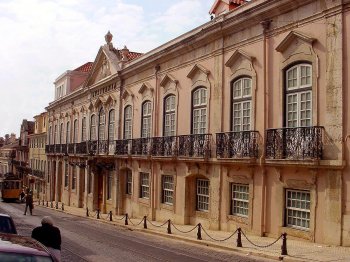
Palácio Nacional de Belém
- heritage
Praça Afonso de Albuquerque
1300-004, Lisboa
Its construction was ordered by Dom João V in 1726 and it suffered important remodelling works during the XIX century. The Palace gardens, with statues and lakes are worthy of notice. After the Republic Implantation, this elegant pink house became the official residence of the head of state.
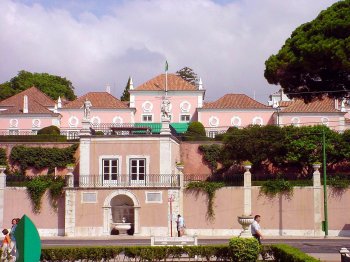
Palácio Foz
- heritage
Calçada da Glória, 9
1250-112, Lisboa
The work began in 1777 and finished only one century later. It is a building with sober lines with influence of the Italian “new taste”.
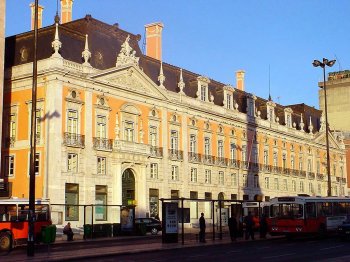
Palácio Xabregas ou Marqueses de Olhão
- heritage
Rua de Xabregas, 22-40
1900-440, Lisboa
Founded in the XVI century and repaired in the XVIII century, it resisted the earthquake of 1755. This is a large palace with 14 windows at the façade of the noble floor, and 64 rooms, some of them with paintings of Pilment.
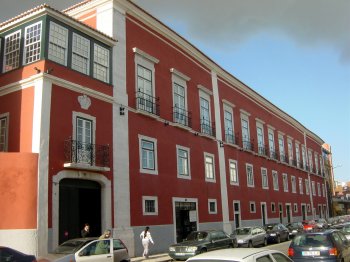
Palácio Ludovice
- heritage
Rua de São Pedro de Alcântara, 39-49
1250-237, Lisboa
Work of the architect Frederico Ludovice, from 1747, as the memorial stone in the central window says. The building has five floors of unequal height, being the third and the forth floors with a balcony.
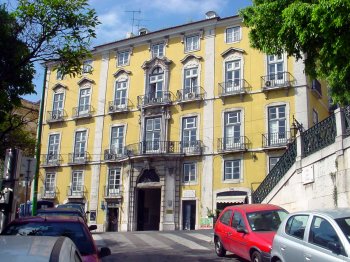
Palácio dos Marqueses de Angeja / Museu Nacional do Traje
- heritage
Largo Júlio de Castilho, 2
1600-483, Lisboa
18th century neo-classical Palace Pombaline and presenting an irregular trapezoidal plan with two wings in l. Integrates a longitudinal Chapel composed of a nave and a chancel, forming three interior courtyards.
